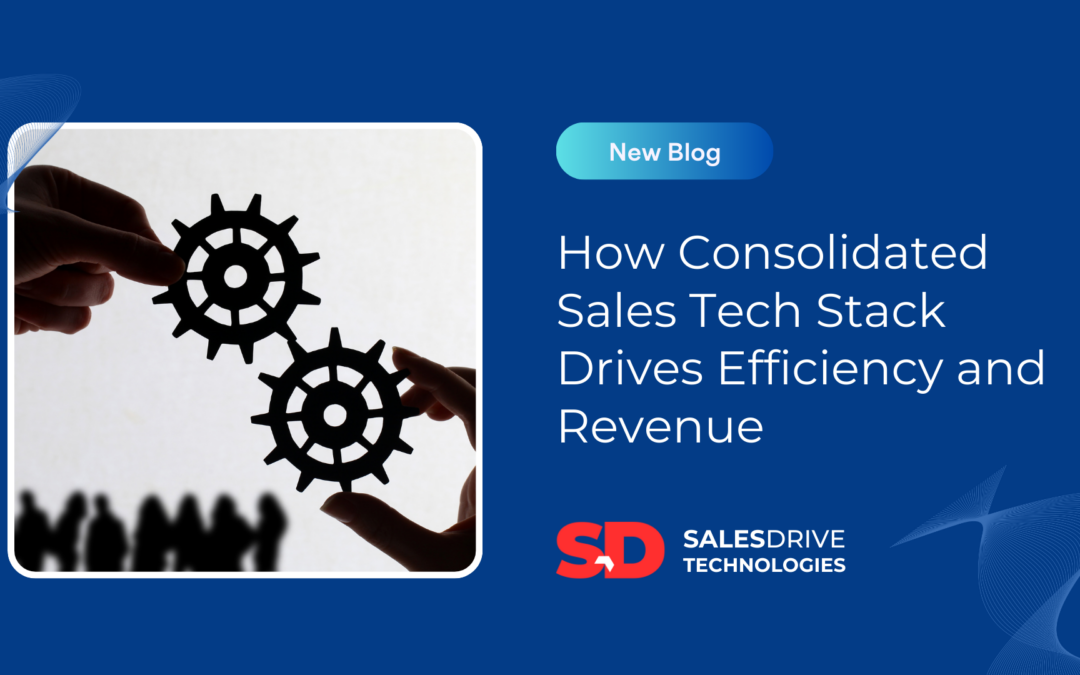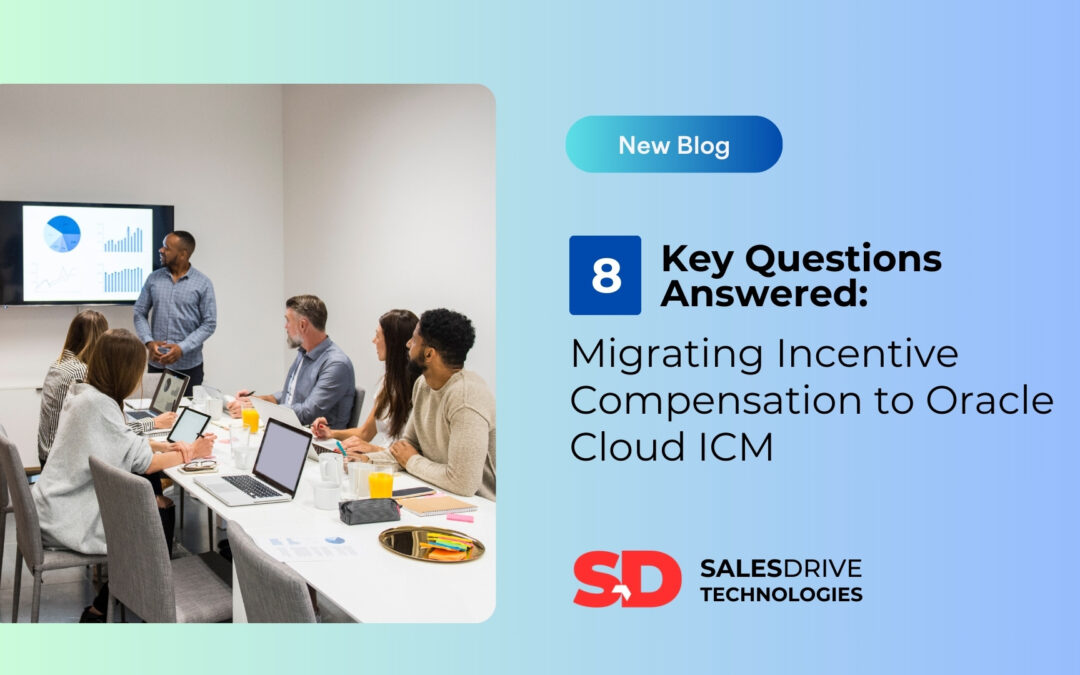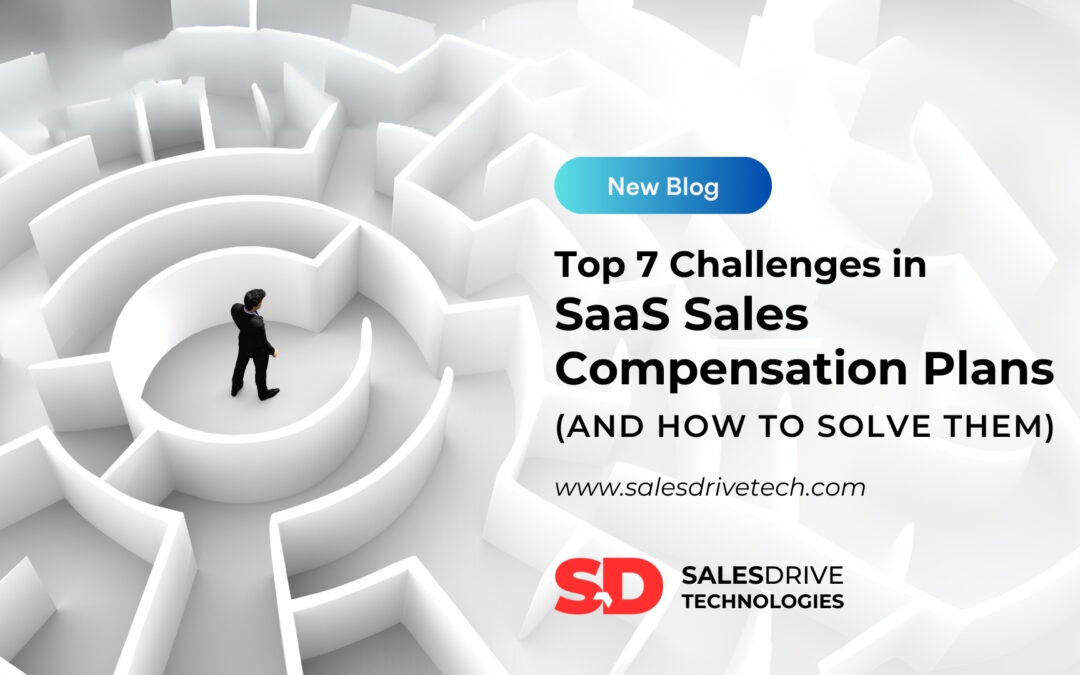A top salesperson closes a game-changing deal. They’re ecstatic, ready to celebrate their hard work and the significant commission payout it deserves. But then, reality hits. Discrepancies emerge in their commission calculation. Emails fly back and forth. Frustration mounts. This scenario, unfortunately, is a common one. Sales commission disputes are a persistent pain point, impacting not just individual reps, but the entire sales force.
Sales commission disputes aren’t isolated incidents. They leave a trail of negativity in their wake. Morale plummets as trust erodes. Reps become disengaged, questioning the fairness of the system and the value of their efforts. Productivity dips as time is diverted from selling to chasing down discrepancies. Ultimately, the company suffers from missed targets and a weakened sales culture.
A well-defined dispute resolution process can be the antidote to this chaos. By establishing clear steps for addressing concerns, you can ensure timely and fair resolutions. This fosters trust, boosts morale, and keeps your sales team focused on closing deals.
Establish a Formal Dispute Resolution Process
In sales, even minor discrepancies in commission calculations can spark conflict. A disgruntled sales rep questioning their payout can quickly snowball into a demoralized team and missed targets. The key to mitigating these disputes lies in establishing a formal dispute resolution process – the cornerstone of a healthy sales commission system.
Why Formalize the Process?
A formal dispute resolution process isn’t just about resolving conflicts; it’s about creating a framework for trust and transparency. Here’s how it benefits your organization:
- Enhanced Efficiency: A well-defined process streamlines the resolution timeline. Reps know the reporting channels, and managers can investigate and reach conclusions efficiently, minimizing disruption.
- Transparency Breeds Trust: A clear process fosters a sense of fairness. Reps understand their rights and the system’s mechanisms, fostering open communication and reducing suspicion.
- Ensuring Equitable Outcomes: Objective criteria guide decision-making, ensuring consistent and fair resolutions for all parties involved.
An effective dispute resolution process typically follows these key stages:
- Provide reps with clear and accessible channels to report discrepancies. This could be a dedicated online portal, email address, or designated manager.
- Promptly gather all relevant information, including verifiable sales data, commission calculations, and rep communication.
- Maintain transparency throughout the process. Acknowledge the rep’s concerns and provide regular updates on the investigation’s progress.
- Based on the investigation, reach a documented and fair solution. Clearly communicate the decision, outlining the rationale behind it.
Don’t let disputes fester. Implement clear timelines for each step of the process. A prompt resolution minimizes anxiety, fosters trust in the system, and allows reps to refocus on achieving sales goals.
By establishing a formal dispute resolution process, you equip your sales team with the tools to navigate disagreements constructively. This proactive approach fosters a culture of trust, protects the company’s interests, and ultimately, keeps your sales engine running smoothly.
Foster Open Communication and Active Listening
Sales commission disputes are often as emotional as they are factual. When a salesperson approaches you, visibly upset, claiming a discrepancy in their commission payout, your initial reaction might be to explain the calculation or defend the system. However, effective dispute resolution hinges on a different approach: active listening.
Active listening isn’t just about hearing words; it’s about truly understanding the person behind them. When a rep raises a dispute, it’s often more than just a financial concern. It’s about feeling undervalued or questioning the fairness of the system. By actively listening, you achieve several crucial goals:
- Acknowledge the rep’s frustration. A simple “I understand why you’re upset” goes a long way in building trust and demonstrating respect for their concerns.
- Active listening encourages the rep to share details about the perceived discrepancy. This allows you to gather vital information for a thorough investigation.
- Open communication fosters a collaborative environment. The rep feels heard and valued, paving the way for a mutually agreeable resolution.
- Active listening allows you to gather crucial details. Beyond the numbers, identify potential misunderstandings about the commission plan or misinterpretations of sales data.
- Encourage open communication by asking clarifying questions. This creates a safe space for the rep to share their perspective and any relevant information.
A dispute isn’t an attack on the system; it’s an opportunity to identify and address an issue.
Seek Objective Data and Apply Fair Criteria
As mentioned above, Sales commission disputes can be emotionally charged. To reach a fair resolution, we need to shift gears and focus on objective data.
This data serves as the foundation for a strong investigation:
- Verify the details of the disputed sale. Review order confirmations, product specifications, and any relevant contractual agreements.
- Scrutinize the commission calculations themself. Utilize sales tools and compensation plans to ensure accuracy and identify any errors.
- Review email threads, notes from meetings, or any other communication related to the sale and commission expectations.
Unearthing the facts is crucial, but it’s just one piece of the puzzle. To determine a fair resolution, consider these additional factors:
- Understanding the rep’s viewpoint is important. Consider the effort they put into the sale and any extenuating circumstances.
- A resolution shouldn’t create a negative ripple effect. Ensure it aligns with established commission structures and doesn’t disadvantage other reps.
- Review relevant company policies and past dispute resolutions to ensure consistency and adherence to established guidelines.
Negotiating a Mutually Agreeable Solution
Sales commission disputes can feel like a tug-of-war. But the goal isn’t to overpower the other side. It’s to find common ground through collaborative negotiation. Reaching a mutually agreeable solution hinges on clear communication:
- Encourage the rep to participate actively in the negotiation process. Listen to their suggestions and explain the rationale behind any proposed solutions.
- Be upfront about any limitations or constraints. Explain the reasoning behind compromises and final decisions. This fosters trust and prevents misunderstandings.
- Once a solution is reached, formalize it in a written document outlining the agreed-upon terms. This provides clarity and prevents future confusion.
Document the Resolution in Writing
Sales commission disputes can resurface months, even years later, fueled by fading memories and mismatched recollections. To avoid this frustrating scenario, the final step is to document the resolution in writing.
A written agreement offers several advantages:
- A formal document ensures everyone involved is on the same page. It clearly outlines the agreed-upon solution, eliminating ambiguity and preventing future confusion.
- Documented resolutions serve as a historical record. This is valuable for future reference, especially if similar disputes arise.
Signing Off on a Positive Outcome
The document should include key details such as:
- A summary of the dispute
- The agreed-upon resolution
- Any future actions required by either party
- Signatures from both the rep and the designated manager
Conclusion:
By implementing these five best practices, you can transform sales commission disputes from disruptive roadblocks into opportunities to strengthen your sales team. Equipping your reps with clear channels for voicing concerns, fostering open communication, and prioritizing fair resolutions builds trust and keeps your sales engine firing on all cylinders.
However, building a truly effective sales commission system requires a foundation of robust technology. As a leading provider for Oracle CX solutions and an expert in Sales Performance Management and Incentive Compensation, Salesdrive offers the tools and expertise to streamline your commission processes, ensure accuracy, and empower data-driven decision-making.
Learn more about Salesdrive Technologies by visiting www.salesdrivetech.com and discover how their solutions can help you create a win-win for your company and your sales team.




